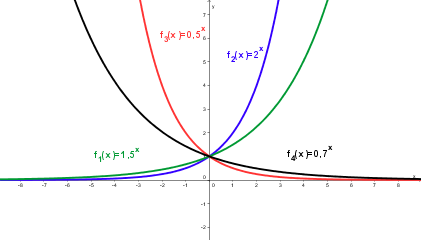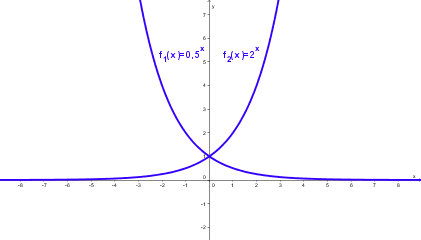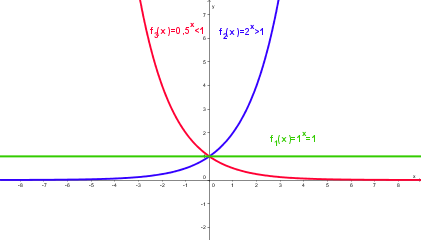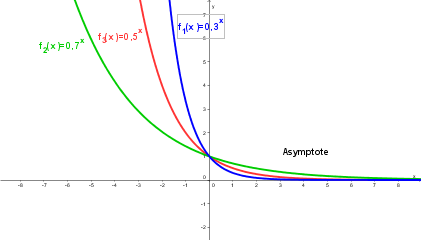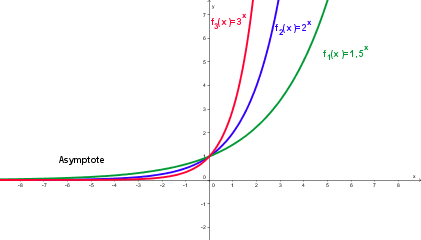Eigenschaften: Unterschied zwischen den Versionen
Aus DMUW-Wiki
(Bilder eingefügt) |
(Layoutänderung) |
||
| Zeile 6: | Zeile 6: | ||
| [[Bild:Exponentialfunktion4.png]] || '''Die Graphen von f(x) = a<sup>x</sup> und g(x) = a<sup>-x</sup> = 1/a<sup>x</sup> liegen symmetrisch bezüglich der y-Achse.''' | | [[Bild:Exponentialfunktion4.png]] || '''Die Graphen von f(x) = a<sup>x</sup> und g(x) = a<sup>-x</sup> = 1/a<sup>x</sup> liegen symmetrisch bezüglich der y-Achse.''' | ||
|- | |- | ||
| − | | '''Für 0 < a < 1 ist die Exponentialfunktion monoton fallend, für a = 1 ist die Funktion konstant, für a > 1 ist sie monoton steigend.''' || [[Bild:Exponentialfunktion2.png]] | + | | '''<span style="color:#ff0000">Für 0 < a < 1 ist die Exponentialfunktion monoton fallend</span>, <span style="color:#008B00">für a = 1 ist die Funktion konstant</span>, <span style="color:#00008B">für a > 1 ist sie monoton steigend.</span>''' || [[Bild:Exponentialfunktion2.png]] |
|- | |- | ||
|[[Bild:Exponentialfunktion6.png]] || '''Für 0 < a < 1 ist die positive x-Achse Asymptote.''' | |[[Bild:Exponentialfunktion6.png]] || '''Für 0 < a < 1 ist die positive x-Achse Asymptote.''' | ||
Version vom 15. Januar 2010, 16:55 Uhr
Eigenschaften der Exponentialfunktion
|
Merke:
|
